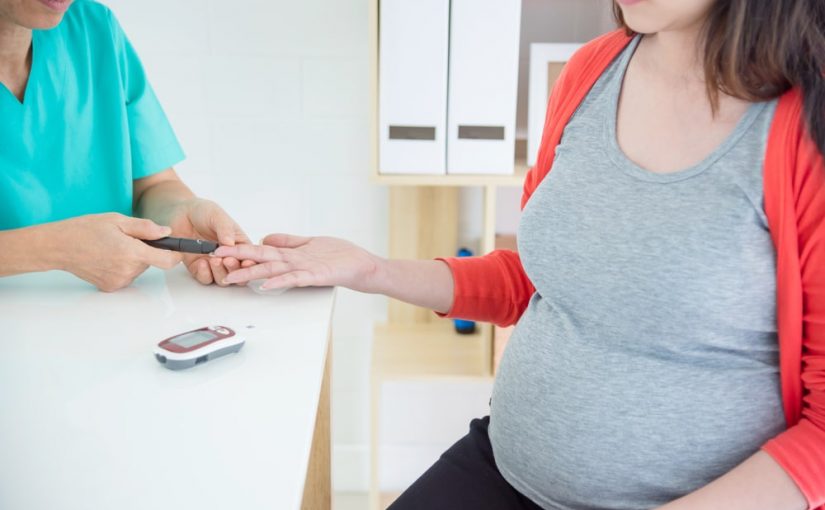Does Type 2 Diabetes affect fertility in females?
People, specifically women at a young age, encounter diabetes, the next question that hits their mind is, Does Type 2 Diabetes affect fertility in females? In comparison to women without diabetes, those who are affected with diabetes frequently have reduced fertility rates.
Obesity, being underweight, diabetic complications, PCOS, or an autoimmune condition are just a few diabetes-related issues that might make it challenging for women to conceive.
Does Type 2 Diabetes affect fertility in females?

One should understand that diabetes and fertility in females are pretty relatable. Diabetes that is not well-controlled can impact a woman’s ability to conceive. Diabetes can cause irregular or nonexistent menstrual periods in women.
At the same time, it can also affect men’s ability to erect and maintain erections and their testosterone levels (the male hormone). Additionally, it may raise the likelihood of stillbirth, miscarriage, caesarean sections, and the requirement for special care for the newborn.
Women who have had diabetes Type 2 for an extended period of time may find it difficult to conceive. Diabetes causes a lack of glucose regulation in the body, which makes it challenging for viable eggs to implant in the uterus. Additionally, obese diabetes patients may make it even more challenging for women to conceive.
Doctors claim that women with diabetes typically become pregnant each month. However, it frequently leads to miscarriage before people realize they are pregnant. Everything takes place because the egg does not implant into the uterus.
Women with type 2 diabetes have a 30 to 60% miscarriage risk. There are greater possibilities that a kid will be born with congenital impairments, even in cases of successful implantation.
Type 2 Diabetes and Fertility Treatment:

It is commonly observed that type 2 diabetes affects fertility in females and it becomes difficult to get pregnant with high blood sugar levels. Type 2 Diabetes-related infertility treatment involves improved glycemic control and managing reproductive hormones and functions.
The physical examination of the couple’s combined medical history and family history is typically involved in diagnosing and treating infertility.
Management of type 2 diabetes can be quickly done with the help of regular exercise and physical activities, maintaining an optimal weight, following a healthy and nutritional diet along with taking prescribed medications.
It is generally observed that females with diabetes facing difficulty conceiving also have weight gain issues. To overcome weight issues along with managing diabetes, oral medications are prescribed.
The best Type 2 Diabetes medication helps to lower blood sugar levels. It is administered to PCOS patients to control their menstrual cycles and improve their pregnancy chances. It also helps to lower the chance of miscarriage brought on by PCOS.
Once the diabetes is controlled and well managed, multiple options exist to improve fertility and enhance the chances of conceiving. Infertility treatments may start with medicines and injections that encourage ovulation in female patients, treat infections, and help female patients produce good-quality eggs and induce ovulation. Hormone replacement therapy may or may not be used based on the requirements.
If conception is impossible, even with the medications, surgical intervention and other methods like IUI and IVF are recommended to make your parenting journey possible.
Takeaway:
It is possible to become pregnant while diabetic; all it takes is planning. A team of endocrinologists, gynecologists, and andrologists monitors your blood sugar levels to ensure that they are within the ideal range for promoting conception and maintaining pregnancy until full term.
Understanding and minimizing the risks associated, eating healthfully, focusing on your goal weight, and adhering to your healthcare team’s recommendations are all essential for success.
FAQs:
Which food increases female fertility?
Plants-based fruits and vegetables like unpeeled apples, bananas, oranges, strawberries, raspberries, mangos, guavas, and the favorite fertility pineapple are all excellent sources of fibre and vitamins in plant-based diets which helps to improve fertility.
Do antidepressants affect female fertility?
Some studies confirm that women on antidepressants for more than six months face odds of getting pregnant or their fertility is impacted.
Does alcohol affect fertility in females?
Alcohol in minimal to moderate amounts does not adversely affect female fertility. But regular consumption of alcohol increases the hormone estradiol, testosterone, and LH levels, which do affect the eggs released from the ovaries and decrease the chances of getting pregnant.
It is generally recommended that women who are trying to conceive must restrict themselves from alcohol consumption.
Does Type 2 Diabetes affect fertility in females?
Yes, Diabetes Mellitus Type 1 or Type 2 are known to affect the normal hormonal functioning of the body. It may cause menstrual irregularities and infertility due to delayed menarche and early menopause.
It also affects the normal secretion of hormones responsible for ovaries to release eggs which is an essential requirement to conceive.

